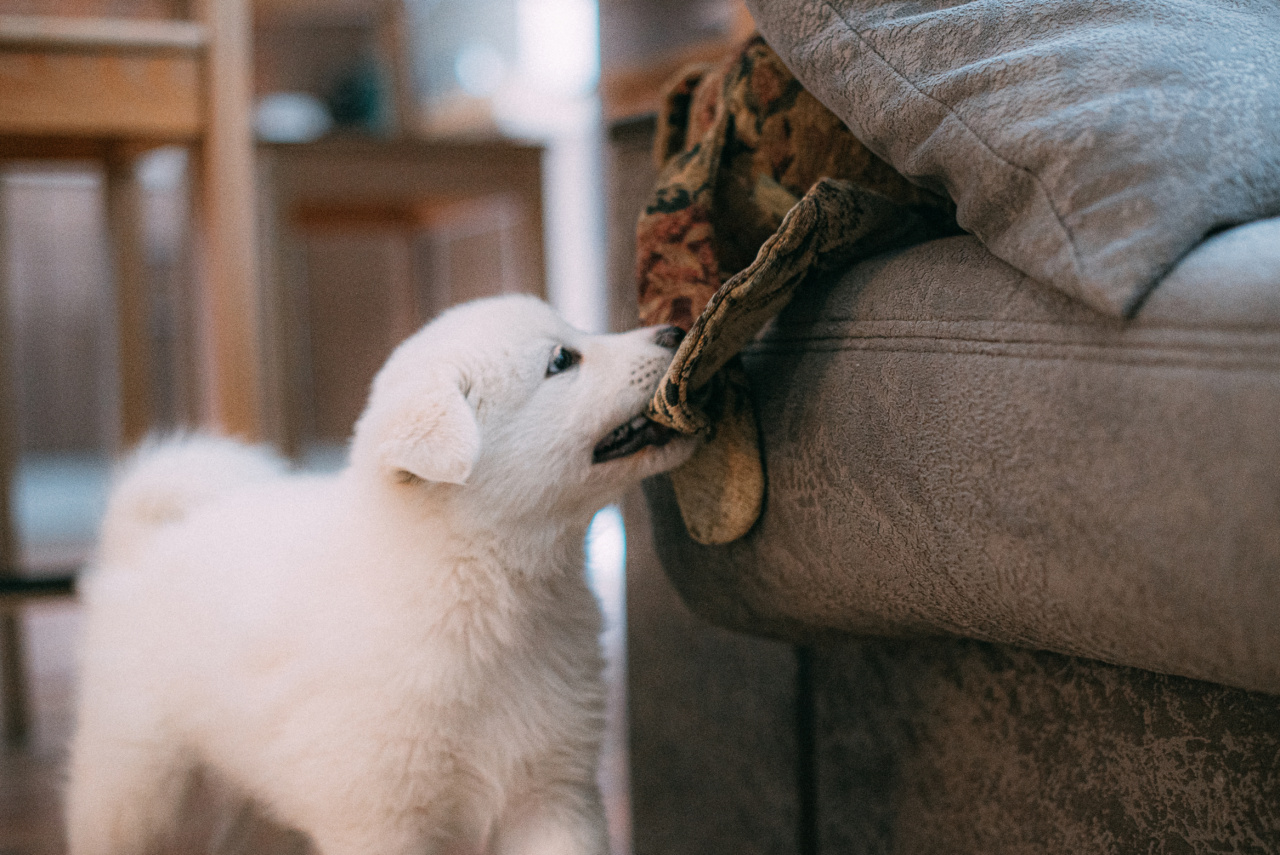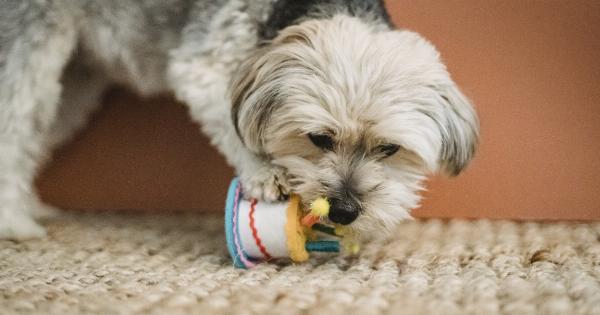When you bring home a new puppy, it can be an exciting time filled with cuddles, playtime, and love. However, as they grow, puppies can start to exhibit biting behavior that can be frustrating and even dangerous.
Puppy biting is a normal developmental stage, but it is important to start training early to prevent this behavior from becoming a bad habit. Here are some tips to help prevent puppy biting.
Tip 1: Incorporate Positive Reinforcement
One of the most effective ways to prevent puppy biting is through positive reinforcement. This refers to rewarding good behavior with treats, toys, and affection.
When your puppy exhibits good behavior, such as playing gently or not biting, reward them with a tasty treat or a toy they enjoy. Positive reinforcement not only helps prevent biting behaviors but also strengthens the bond between you and your puppy.
Tip 2: Teach Bite Inhibition
Bite inhibition training is the process of teaching your puppy to control the force of their bite. This is a critical aspect of puppy training as it will help your puppy understand that biting is not acceptable.
When your puppy bites too hard during playtime, you can make a loud yelp to mimic the sound of a puppy in pain. This will startle your puppy and teach them that biting too hard can cause harm. Additionally, you can redirect your puppy’s attention to an appropriate toy, so they know what is acceptable to bite.
Tip 3: Avoid Physical Punishment
Physical punishment, such as hitting or spanking, is not an effective tool for preventing puppy biting. In fact, it can lead to fear and aggression in puppies. Instead, focus on positive reinforcement techniques to teach your puppy appropriate behavior.
Physical punishment can cause more harm than good and should never be used in puppy training.
Tip 4: Provide Plenty of Exercise and Mental Stimulation
Puppies have a lot of energy and need plenty of exercise and mental stimulation to keep them from becoming bored and destructive. Make sure your puppy gets enough exercise with daily walks, playtime, and training sessions.
Additionally, provide mental stimulation with interactive toys, puzzles, and games. A well-exercised and mentally stimulated puppy is less likely to engage in biting behaviors.
Tip 5: Use Timeouts
When your puppy becomes too rough during playtime, you can use a timeout to help them cool down. This means putting them in a separate room or area for a few minutes until they calm down.
This will teach your puppy that biting and rough play will not be tolerated and remove the opportunity for them to engage in the behavior. However, timeouts should not be used as a form of punishment, and you should always reward good behavior when your puppy returns from the timeout.
Tip 6: Socialize Your Puppy
Socialization is important for puppies to learn appropriate behavior around other dogs and people. If your puppy is not socialized, they may become fearful or aggressive, which can lead to biting.
Introduce your puppy to other dogs, people, and environments early on, so they become accustomed to different situations. This will help prevent fear or aggression and promote good behavior.
Tip 7: Practice Consistency
Consistency is key in puppy training. Make sure everyone in the household is on the same page when it comes to puppy training and reinforcement. This will help prevent confusion for your puppy and ensure they learn appropriate behavior consistently.
Additionally, be consistent with the rules and consequences for biting behavior, so your puppy understands what is expected of them.
Tip 8: Seek Professional Help
If your puppy’s biting behavior continues despite training efforts, it may be time to seek professional help.
A certified dog trainer or behaviorist can provide expert advice and guidance on how to prevent biting behavior and reinforce positive behaviors. They can also evaluate your puppy’s behavior to ensure there are no underlying medical or behavioral issues causing the biting.
Tip 9: Be Patient and Understanding
Puppy training takes time and patience. Be understanding when your puppy makes mistakes and focus on reinforcing good behavior instead.
Remember that puppy biting is a normal developmental stage and can be prevented with consistent training and reinforcement. With patience and understanding, you can help your puppy become a well-behaved and loving companion.
Tip 10: Monitor Your Puppy’s Behavior
It is important to monitor your puppy’s behavior closely and intervene when necessary. If your puppy starts to exhibit biting behavior, redirect their attention to an appropriate toy or use a timeout to help them calm down.
Additionally, monitor your puppy’s body language to ensure they are not feeling threatened or uncomfortable. By being aware of your puppy’s behavior, you can prevent biting and promote positive behaviors.






























